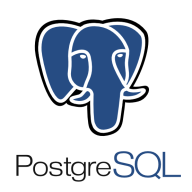

Find out in this report how the two Open Source Databases solutions compare in terms of features, pricing, service and support, easy of deployment, and ROI.
| Product | Market Share (%) |
|---|---|
| PostgreSQL | 14.7% |
| Azure Database for PostgreSQL | 0.9% |
| Other | 84.4% |

| Company Size | Count |
|---|---|
| Small Business | 3 |
| Midsize Enterprise | 4 |
| Large Enterprise | 16 |
| Company Size | Count |
|---|---|
| Small Business | 57 |
| Midsize Enterprise | 26 |
| Large Enterprise | 46 |
Azure Database for PostgreSQL offers efficient management, robust networking, and seamless Microsoft integration. Known for its strong performance and high satisfaction in enterprise settings, it provides operational efficiency, security, and monitoring.
With features that facilitate Azure integration, easy configuration, and AI integration, Azure Database for PostgreSQL serves as a valuable choice for businesses requiring operational efficiency and cost-effectiveness. Users benefit from powerful vector capabilities, seamless Microsoft service integration, straightforward management, and user authentication ensuring high satisfaction. Easy optimization, query analysis, and backup operations make it suitable for varied enterprise applications. However, improvements in flexible scaling, cost-effectiveness of monitoring tools, and enhanced integration with Azure OpenAI would enhance its capabilities further.
What Are the Key Features of Azure Database for PostgreSQL?Industries such as healthcare, retail, and finance leverage Azure Database for PostgreSQL for backend solutions, incident reporting, and public information sharing. Managed service providers utilize its strong performance for client needs, while administrators use it for applications like ControlM. Its flexibility supports containerized applications and disaster recovery, ensuring compatibility with diverse environments.
PostgreSQL is a versatile and reliable database management system commonly used for web development, data analysis, and building scalable databases.
It offers advanced features like indexing, replication, and transaction management. Users appreciate its flexibility, performance, and ability to handle large amounts of data efficiently. Its robustness, scalability, and support for complex queries make it highly valuable.
Additionally, PostgreSQL's extensibility, flexibility, community support, and frequent updates contribute to its ongoing improvement and stability.
We monitor all Open Source Databases reviews to prevent fraudulent reviews and keep review quality high. We do not post reviews by company employees or direct competitors. We validate each review for authenticity via cross-reference with LinkedIn, and personal follow-up with the reviewer when necessary.